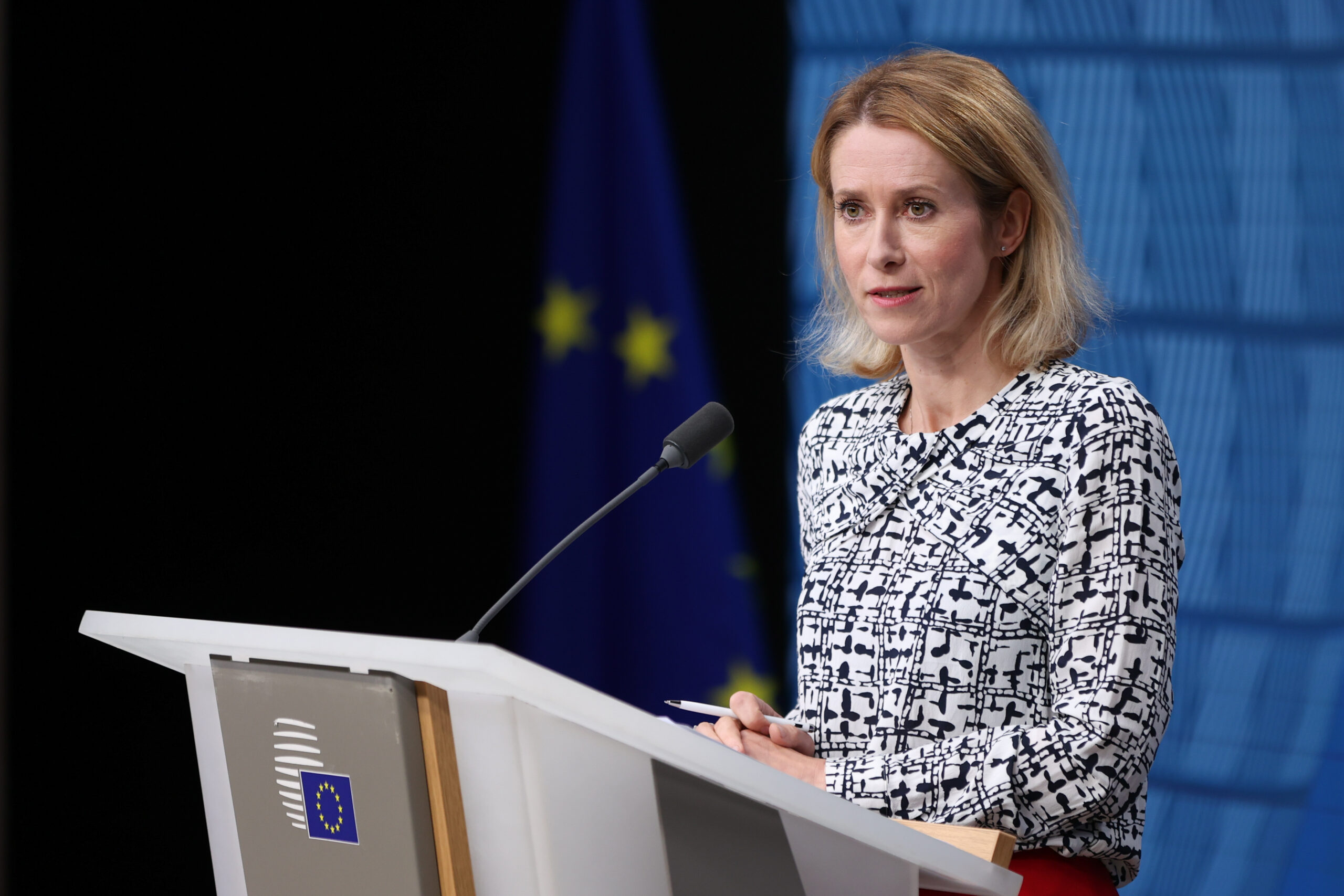EU warned Georgia’s democratic backsliding “will come at a cost” as the bloc’s foreign ministers met in Brussels on July 15 to discuss the measures in response to the Georgian Dream repression, including the possible suspension of the visa-free travel that Georgians have enjoyed since 2017.
Speaking at a press conference after the EU Foreign Affairs Council meeting, Kaja Kallas, the EU’s High Representative for Foreign Affairs and Security Policy and Vice President of the European Commission, said the foreign ministers “took stock of EU support to civil society, and discussed different options – what more we can do,” which, she said, include the suspension of visa-free travel with Georgia, the suspension of Association Agreement, and imposing sanctions.
“The assault on democracy by Georgian Dream is growing more severe,” Kallas said, adding that “Georgia’s democratic backsliding will come at cost.”
Earlier in the day, HR/VP Kallas told journalists that the ministers would send a letter to the Georgian Dream government. RFE/RL’s Rikard Jozwiak also reported on X that the EU Commission was preparing a letter to Georgia threatening to suspend visa liberalization, adding that the deadline in the letter was August 31.
Asked about the contents of the letter during the press conference after the meeting, Kallas spoke about conditions for the suspension of visa-free travel with Georgia, which she called a “big benefit” for the country.
In particular, she stressed authorities’ obligation “to ensure and uphold the protection of fundamental rights of all Georgian citizens, including the freedoms of association, assembly, and expression, the right to privacy, the right to participate in public affairs, as well as the prohibition of discrimination.” She said this is only one obligation, noting there are eight more.
She went on to mention the jailing of opposition leaders, stressing that “this is not really in accordance with the first point that I pointed out.”
Kallas said the authorities have until the end of August to fulfill the recommendations.
“So far, we have kept this position that we don’t want to hurt Georgian people, and taking away the visa-free regime is really having an impact on them. But at the same time, it’s also an issue of the credibility of the European Union. If we’ve asked those things, and this is something beneficial or bonus we are giving to this country, they are not complying with these conditions, then there are also consequences for the public also to see that the government is not on the European path and is not taking the candidacy status seriously” she said.
Unlike most EU foreign policy decisions, suspending visa-free travel does not require unanimity among all 27 member states. Instead, a qualified majority, at least 15 out of 27, with 65% of the population, can approve the move.
Days before the meeting, Kallas and 18 European foreign ministers – 15 of them from EU member states – issued a joint statement expressing “deep concern” at the “deteriorating situation” in Georgia. Calling the GD’s course “anti-European” and “authoritarian,” they noted, “It’s not too late to reverse course.”
The EU already suspended visa-free travel for holders of Georgia’s diplomatic passports in January.
The rhetoric from Brussels on visa-free travel intensified against earlier remarks by the EU ambassador to Georgia in June that a majority of the bloc’s member states opposed the suspension.
Tbilisi has repeatedly accused Brussels of using the visa-free travel issue as a tool of “pressure” and “blackmail” against Georgian Dream. When discussions about suspending Georgia’s visa-free regime emerged in April, some ruling party members urged the public to prioritize “patriotism over comfort.”
In addition to the visa-free travel issue, the EU foreign ministers had a list of 15 Georgian citizens ready for sanctions, Kallas confirmed to journalists earlier in the day. She said the list included two judges. Kallas did not comment on the matter during the press conference, however.
“No concrete decisions,” RFE/RL’s Jozwiak wrote on X after the discussions concluded.
Also Read:
- 11/07/2025 – EU’s Kallas, 17 European FMs ‘Disturbed, Deeply Concerned’ Over Georgia’s ‘Deteriorating Situation’
- 11/06/2025 – Polish PM Tusk Says His Government Pushes EU to Suspend or Limit Georgia’s Visa-Free Travel
- 29/04/2025 – EU Weighs Suspending Georgia’s Visa-Free Travel, Reviewing DCFTA and Candidate Status
- 02/04/2025 – EU: Adopted Laws Erode Foundations of Democracy in Georgia
- 07/02/2025 – Kallas, Kos Call to GD: “Release All Journalists, Activists and Political Detainees”
- 01/12/2024 – EU Leadership “Regrets” GD’s EU Turn
This post is also available in: ქართული
